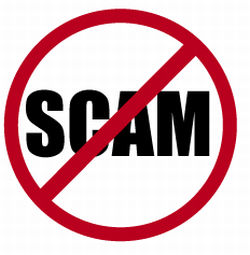How to Avoid Real Estate Scams: What to Look Out For
 Are you trying to figure out how to avoid real estate scams? Read this article to learn what to look for to see if it’s a scam.
Are you trying to figure out how to avoid real estate scams? Read this article to learn what to look for to see if it’s a scam.
In 2018 alone, 11,300 people lost over $149 million to real estate or rental fraud.
It’s true that real estate “done right” can change your life for the better. Falling victim to a property scam, however, could devastate your finances for years to come.
Whether you’re renting your first apartment or you’re a professional house flipper, you can’t be too careful about who you’re dealing with. The key is to arm yourself with knowledge so you can spot a scam when you see one.
In this post, we’ll cover the most common real estate scams to be aware of. Read on to learn more!
Bogus Money Transfers
Clever con artists fool many unsuspecting people into making an international wire transfer.
The fraudster sets up a website that’s (almost) identical to the title or lending company you’re working with. Then, they contact you via email or phone call with instructions on where to wire your funds.
Before you know it, your money is sitting in an offshore account somewhere, leaving you very little chance of retrieving it.
To avoid falling victim to this type of scam, screen all incoming emails and messages for spelling errors. Often, only one letter or digit is changed, making it difficult to notice.
Never click on links in an email or send money online without verifying the details with a live person. Go back to the original paperwork you received from the lender and contact them directly about any correspondence you receive.
Fraudulent Rental Properties
Over 5.2 million Americans have fallen victim and lost money to rental scams. Young people especially are prone to these types of real estate scams.
Rental fraud takes on a variety of forms. Some scammers create fake listings for properties that don’t even exist, while others post misleading photos of a different property.
Others rent out their foreclosed home and pocket your rent money—unbeknownst to you until the bank knocks on your door.
In most of these cases, the red flags are the same. Never send money for a deposit without seeing the property in person, and you should never have to pay to view anything.
You should beware of rental ads on social media channels or Craigslist. While legitimate ads are out there, these are ideal prowling grounds for scammers. Steer clear of any listings that don’t include photos or imply fast action is required.
It’s also never a bad idea to check public records for the address. This will help you verify the owner is who they claim to be, as well as alert you if the property is in foreclosure.
False Foreclosure Relief
It’s understandable to want to save your home if you fall on hard times. Unfortunately, if you fall behind on your mortgage payments, you become a prime target for real estate scams.
Scammers check public records to see which homes are in pre-foreclosure. They then contact you and pose as someone from a government or housing assistance program.
In exchange for an upfront fee, they promise they can help you save your home and even reduce your mortgage payments. Then, they walk away with your money, leaving you in worse financial condition than you were in before.
If you’re facing foreclosure, your best bet is to work directly with your lender. There might be options available that will allow you to keep your home.
If anyone shows up promising to save your house and tells you not to contact your lender, don’t fall for it. It’s a sure sign of a scam.
Cosmetic Cover-Ups
This is one to be on the lookout for if you’re hunting for a new home or investment property.
A real estate scammer may be adept at selling properties that look great on the outside but are falling apart on the inside. They know exactly what to say to get you to buy a house full of defects—a fact you’ll discover too late.
Red flags to watch out for include:
- Very recent renovations
- Unexpected cosmetic changes
- Closed doors or taped-off sections
- Refusal to provide routine paperwork
- “Overselling” the property’s good points
Even if everything appears in good working order, you should order a home inspection to be sure. Otherwise, you could uncover a disaster that will cost you much more in the long run.
Fake Real Estate Agents & Lawyers
These days, anyone can create an attractive website and pose as a professional. Scammers are taking full advantage of this by posing as either realtors or attorneys—when in reality, they’re neither.
Like the other scams outlined above, they generally ask for an upfront fee for their services. After that, you never hear from them (or see your money) again.
It’s easy enough to verify if an agent is legitimate. Ask to see their license and make sure it’s current. If they refuse to provide it, run.
If you get a call from an attorney independent of the seller, beware. Double-check with the seller to see if they know and are currently using the lawyer.
Before using the services of any attorney, check your state’s bar association for a list of currently licensed lawyers. This will quickly tell you if the attorney is legitimate or if it’s a scam attempt.
Want to Avoid Real Estate Scams? Go With Your Gut
No matter how careful or thorough you are, there’s always the chance you could be targeted by a real estate scammer. Familiarizing yourself with common scams, like the ones listed in this article, is a great place to start.
Never underestimate the power of trusting your gut instinct too. If a deal comes along that seems too good to be true, it probably is. And if something or someone seems “off,” don’t ignore that feeling.
Protect yourself (and your hard-earned money) by trusting your gut and staying up to date on the latest real estate scams.
Speaking of scams, would you like to know more? Then check out the rest of our blog.


